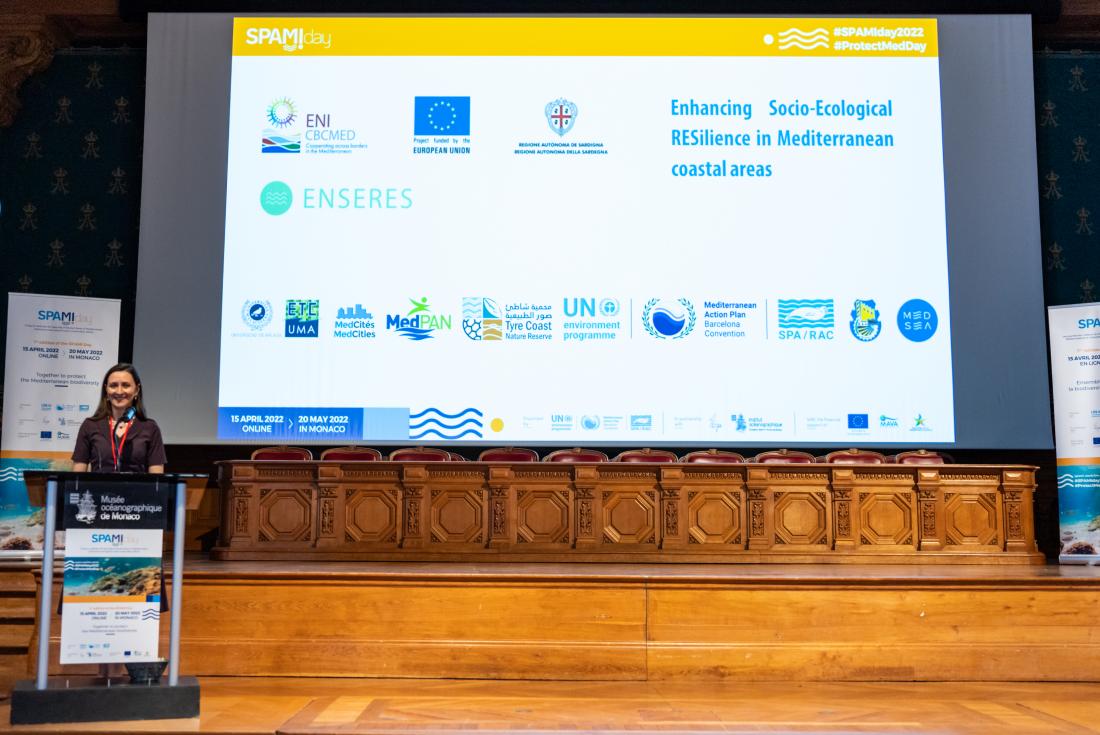Capitalising and integrating new strategies into local and national management policies: the role of SPA/RAC in ENSERES

“Following a first successful experience in twinning the Specially Protected Areas of Mediterranean Importance (SPAMIs), SPA/RAC is capitalizing on the programme through the ENSERES project, in order to strengthen cooperation towards a common goal of reducing pressures on coastal and marine resources”, says Saba Gellouz, SPA/RAC’s project officer for the Biodiversity Strategic Action Programme.
The Regional Activity Centre for Specially Protected Areas (SPA/RAC) represents a very experienced and solid partner for the ENSERES Project. It was established in 1985 within the Barcelona Convention to support the Mediterranean countries in implementing the Specially Protected Areas and Biological Diversity (SPA/BD) Protocol and fulfilling their engagements towards the conservation of marine biodiversity. The main tool for such aim has for almost 40 years been the development and implementation of regional strategies and action plans to protect and conserve vulnerable and threatened species and their habitats, as well as the development and effective management of a systems of marine and coastal protected areas and other effective area-based conservation measures in the Mediterranean.
As Khalil Attia, SPA/RAC Director underlines, “The Barcelona Convention provides a relevant framework for cooperation among countries in collaboration with relevant national, regional and global organisations concerned with coastal and marine protection that SPA/RAC uses to foster the capitalization and transfer of knowledge and techniques in the different fields of biodiversity conservation, such as monitoring, assessment, effective MPA management, etc., over Mediterranean marine and coastal areas”.
In particular, within ENSERES, SPA/RAC has launched, in coordination with the other partners, a call for sub-grants to involve local civil society organizations in SPAMI management and Integrated Coastal Zone Management around the SPAMIs of Tyre Coast (Lebanon) and Kneiss (Sfax, Tunisia). Also, in the framework of this project, the Centre will organise a conference of decision-makers and donors to capitalise on and integrate the newly adopted strategies (post-2020 SAPBIO and the post-2020 Regional Strategy for MCPAs and OECMs in the Mediterranean) into local and national management policies. It will eventually help fundraising for the implementation of these strategies and contribute to achieve the 2030 30% biodiversity conservation goal at regional, sub-regional and national levels.









